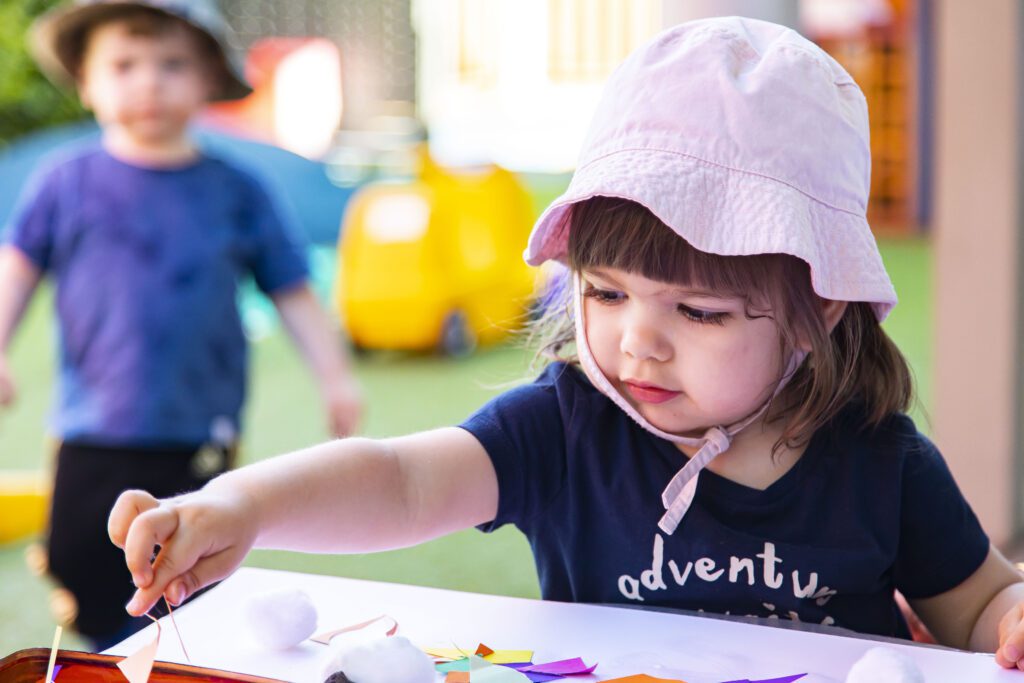 Book a Tour
Book a Tour WhatsApp
WhatsApp Join Waitlist
Join Waitlist
Whether you’re a new parent seeking guidance or a seasoned caregiver looking for fresh insights, join us on this exploration of essential tips that encapsulate the ABCs of providing care to young children. Caregiving is a remarkable adventure filled with unique challenges and triumphs, and understanding the fundamental principles of childcare is essential for creating a nurturing environment. In this blog, we will be touching on key aspects of parenting, from building emotional bonds through undivided attention to fostering independence and promoting a healthy lifestyle. Remember that every child is unique, so adapt these principles to suit your family’s values and dynamics. Enjoy!

A – Attention: Give your child undivided attention regularly to build a strong emotional bond.
B – Boundaries: Set clear and consistent rules to provide structure and security for your child.
C – Communication: Foster open and positive communication to understand and be understood by your child.
D – Discipline: Focus on teaching and guiding rather than punishing; use positive reinforcement for good behaviour.
E – Education: Stimulate curiosity through books, educational games, and hands-on experiences.
F – Family Time: Plan outings and activities that involve the entire family, promoting social growth and connections.
G – Growth and Development: Stay informed about your child’s milestones and challenges at different ages, ensuring you are aware of any issues.
H – Health: Prioritise regular check-ups, vaccinations, and healthy habits for your child’s overall well-being.
I – Independence: Encourage age-appropriate responsibilities to foster independence and confidence.
J – Joy: Infuse your parenting with joy, celebrating small victories and creating happy memories.
K – Kindness: Model and teach kindness to help your child develop empathy and positive social skills.
L – Love: Express love regularly to create a nurturing and secure environment for your child.
M – Mindfulness: Practice mindfulness to stay present and connected with your child.
N – Nurturing: Provide a supportive and caring environment to help your child thrive emotionally and socially.
O – Organisation: Maintain a well-organised and structured home to reduce stress and promote a sense of stability.
P – Patience: Cultivate patience to navigate the challenges of parenting with grace.
Q – Quality Time: Spend quality time engaging in meaningful activities with your child.
R – Respect: Model and teach respect for others, fostering positive relationships.
S – Sleep: Ensure your child gets enough quality sleep for their overall health and well-being.
T – Teamwork: Collaborate with your co-parent or support network to share responsibilities and create a harmonious environment.
U – Understanding: Seek to understand your child’s perspective and emotions to strengthen your connection.
V – Values: Instil your family values through conversations and actions.
W – Water Safety: Educate your child about water safety and supervise water activities closely.
X – eXercise: Encourage physical activity and play to promote a healthy lifestyle.
Y – Your Well-being: Take care of your own well-being to be a more effective and resilient parent.
As educators at our services, we aim to ensure your child is in an environment that promotes curiosity and an eagerness to explore, opening many possibilities for the extension of learning. When your child transitions to school, we aim to prepare them for lifelong learning. Book a tour.